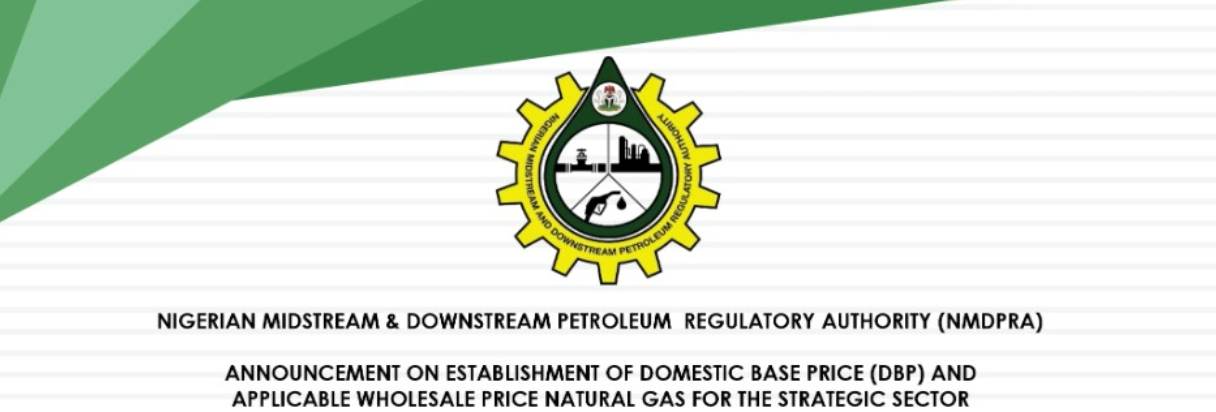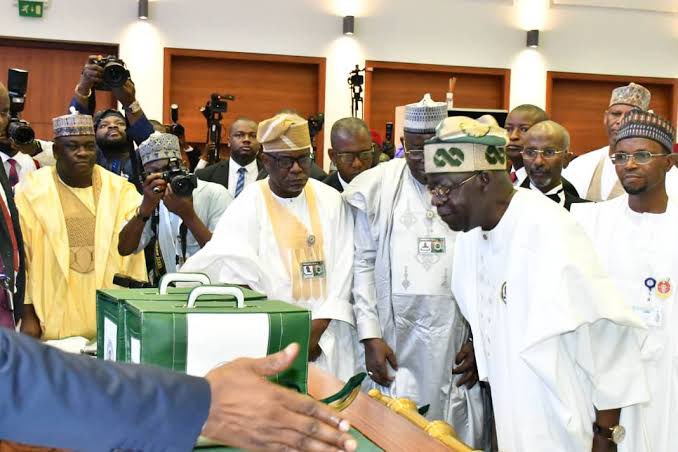President Bola Tinubu has presented a record N27.5 trillion 2024 appropriation bill, called “Budget of Renewed Hope”
to the national assembly.
Tinubu who made the presentation on Wednesday to the joint session of the national assembly in Abuja, said, the revised 2024-2026 Medium Term Expenditure Framework (MTEF) and Fiscal Strategy Paper (FSP) set out the parameters for the 2024 Budget.
He said, “after a careful review of developments in the world oil market and domestic conditions, we have adopted a conservative oil price benchmark of 77.96 US Dollars per barrel and daily oil production estimate of 1.78 million barrels per day. We have also adopted a Naira to US Dollar exchange rate of 750 naira per US Dollar for 2024.
“Accordingly, an aggregate expenditure of 27.5 trillion naira is proposed for the Federal Government in 2024, of which the non-debt recurrent expenditure is 9.92 trillion naira while debt service is projected to be 8.25 trillion naira and capital expenditure is 8.7 trillion naira. Nigeria remains committed to meeting its debt obligations. Projected debt service is 45% of the expected total revenue.
“Budget deficit is projected at 9.18 trillion naira in 2024 or 3.88 percent of GDP. This is lower than the 13.78 trillion naira deficit recorded in 2023 which represents 6.11 percent of GDP.
“The deficit will be financed by new borrowings totalling 7.83 trillion naira, 298.49 billion naira from Privatization Proceeds, and 1.05 trillion naira drawdown on multilateral and bilateral loans secured for specific development projects”, he said.
According to him, the government is reviewing the nation’s tax and fiscal policies for increased revenue.
“We are currently reviewing our tax and fiscal policies. Our target is to increase the ratio of revenue to GDP from less than 10 percent currently to 18 percent within the term of this Administration. Government will make efforts to further contain financial leakages through effective implementation of key public financial management reforms”, he said.
The President said, the proposed Budget seeks to achieve job-rich economic growth, macro-economic stability, a better investment environment, enhanced human capital development, as well as poverty reduction and greater access to social security.
He noted that defence and internal security were accorded top priority, adding that the internal security architecture would be overhauled to enhance law enforcement capabilities and safeguard lives, property, and investments across the country.
To improve the effectiveness of the budget performance, Tinubu said, the government would focus on ensuring value for money, greater transparency, and accountability. “In this regard, we will work more closely with development partners and the private sector”, he said.
President Tinubu said, to address long-standing issues in the education sector, a more sustainable model of funding tertiary education would be implemented, including the Student Loan Scheme scheduled to become operational by January 2024.
On the performance of the 2023 budget, he said, an aggregate revenue of 11.045 trillion naira was projected to fund the 2023 Budget of 24.82 trillion naira with a deficit of about 6.1 percent of GDP.
He said, as of September 30, the Federal Government’s actual aggregate revenue inflow was 8.65 trillion naira, approximately 96 percent of the targeted 8.28 trillion naira.
“Despite the challenges, we continue to meet our obligations”, he said.
Tinubu said, the economic conditions remain challenging both abroad and at home, adding that “despite lingering Post-Covid supply and production bottlenecks, armed conflict in various parts of the world and restrictive monetary policies in major economies, we expect global growth to hover around 3.0 percent in 2024. This relatively low rate has significant implications for our economy due to our current reliance on importation”.
He said, despite the global headwinds, the Nigerian economy has proven resilient, maintaining modest but positive growth over the past twelve months.
“Inflation has trended upward due to weak global conditions. To contain the rising domestic prices, we will ensure effective coordination of fiscal and monetary policy measures, and collaborate with sub-national governments to address structural factors driving inflation in Nigeria.
“The Budget proposal meets our goal of completing critical infrastructure projects which will help address structural problems in the economy by lowering the costs of doing business for companies and the cost of living for the average person, The Honourable Minister of Budget and Economic Planning will provide full details of this proposal”, he added.
Addressing the lawmakers, he said, “as you consider the 2024 Budget estimates, we trust that the legislative review process will be conducted with a view to sustaining our desired return to a predictable January-December fiscal year.
“I have no doubt that you will be guided by the interest of all Nigerians. We must ensure that only projects and programs with equitable benefits are allowed into the 2024 Budget.
“Additionally, only projects and programs which are in line with the sectoral mandates of MDAs and which are capable of realizing the vision of our Government should be included in the budget”, he advised.





































